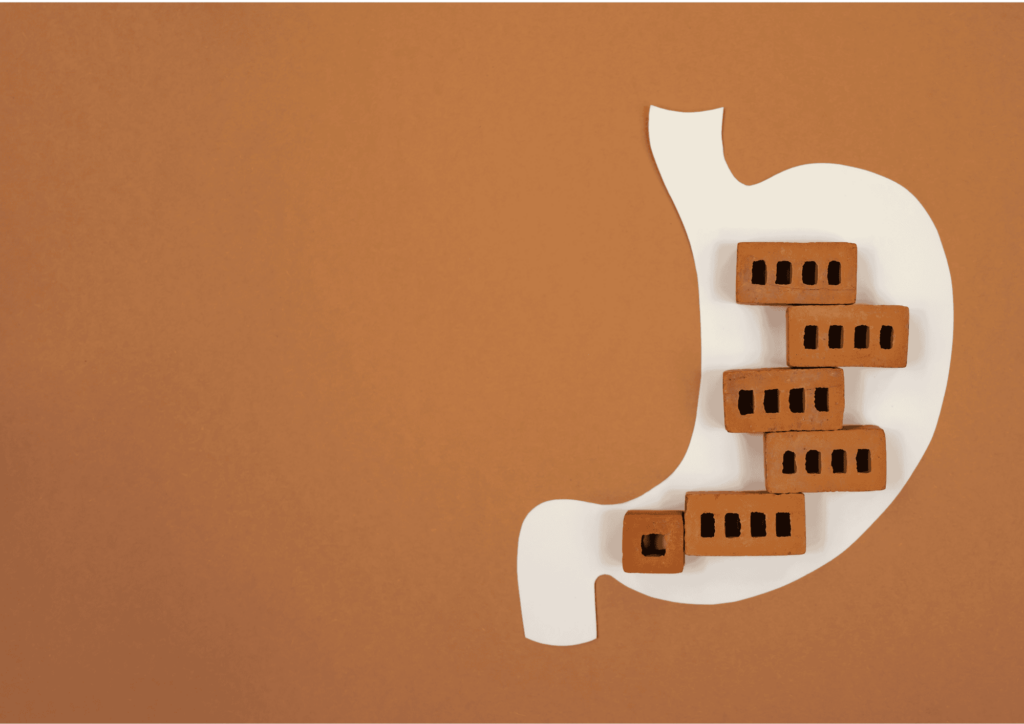Bloating: it’s a complaint many of us are all too familiar with. That uncomfortable, swollen feeling in the abdomen can be both inconvenient and, at times, painful. With so much information available online, sifting through the advice to find the best supplement for bloating can be overwhelming. Here, we break it down, drawing from credible scientific sources, to guide you in your search for relief from bloating.
What Causes Bloating?
Although bloating is not uncommon, the reasons for bloating are varied. There can be one cause or a combination of triggers. Understanding the cause of your bloating can help you find the most suitable supplement to help relieve it. Below are some of the most common causes of bloating:
Digestive Disorders
Conditions like Irritable Bowel Syndrome (IBS), Crohn’s disease, celiac disease, and even gastritis can result in chronic bloating due to inflammation and irregular bowel movements.
>>Not Sure What The Difference Is Between IBS and IBD? Find Out Here!
Gas Accumulation
Consuming foods that are hard to digest, like beans, lentils, certain whole grains, and some vegetables, can lead to an accumulation of gas.
Overeating
Large meals can strain the digestive system, leading to temporary bloating.
Food Intolerances
Some individuals lack specific enzymes, like lactase in lactose intolerance, leading to difficulty digesting certain food compounds.
Swallowing Excess Air
Quick eating, gum chewing, and drinking carbonated beverages can result in ingesting extra air.
Supplementing For Relief: Best Supplement for Bloating
With so many supplements claiming to ‘beat the bloat’, how can you know which products actually work? The answer is in the ingredients. You want to find a supplement that uses ingredients that have been scientifically proven to be effective at reducing bloating. In particular, Probiotics and ingredients such as peppermint, psyllium husk, aloe vera, and ginger have been shown to help improve bloating.
Probiotics
With our gut hosting trillions of bacteria, maintaining a balance is essential. When there is an imbalance in gut bacteria, digestive issues such as bloating can occur. Probiotics can restore harmony to gut flora. Specific strains, such as Lactobacillus acidophilus and Bifidobacterium lactis, have been scientifically demonstrated to reduce bloating (1).
But, not all probiotic supplements will be created equal, and there are certain things you should look for if you decide a probiotic is for you:
- Opt for one with a diverse range of strains, ideally at least 10, including clinically-proven ones like Saccharomyces boulardii and various Lactobacillus strains, to ensure broad health benefits.
- Ensure it provides at least 1 billion CFUs, indicating a substantial number of live microorganisms for optimal effectiveness.
- Look for a supplement that includes a prebiotic, like Fructooligosaccharides (FOS), which supports the growth of beneficial gut bacteria.
Research Verified® Probiotic fits the criteria above and may just be the supplement that you need to say goodbye to your bloat. Just keep in mind that when you first start taking probiotics, you might experience an increase in gas and bloating. This is totally normal and just a sign that the probiotics are getting to work.
>>Have More Questions About Probiotics? Probiotics FAQs Is The Article For You!
Bloat-Friendly Supplement Ingredients
Peppermint: Beyond its pleasant aroma, peppermint acts as an antispasmodic, relaxing the gastrointestinal muscles and aiding bloating (2).
Fiber: While counterintuitive, since certain fibers can induce gas, they can also be beneficial. Psyllium husk, for instance, can help manage constipation, reducing associated bloating (3).
Aloe Vera: Has a soothing effect on the intestinal lining which can help reduce feelings of abdominal discomfort and help relieve bloating (4).
Ginger: The antioxidant and anti-inflammatory properties of ginger can help improve digestive health and reduce feelings of bloat (5).
Research Verified® IBS Relief incorporates all these beneficial ingredients and more in its carefully crafted formula. Designed to alleviate a range of IBS symptoms – from diarrhea and constipation to abdominal pain and, notably, bloating – its effectiveness is also echoed in numerous user reviews.
>>Discover How IBS Supplements Really Work To Relieve Symptoms!
Lifestyle Adjustments: Beyond Supplements
While choosing the right supplement for bloating can absolutely be the key to relieving bloating, it is important not to overlook lifestyle changes that can aid you in your journey to becoming bloat-free.
Mindful Eating
Chewing thoroughly and eating slowly can reduce air intake and ensure better digestion.
Stay Hydrated
Water assists in food breakdown and prevents constipation, a common bloating culprit.
Regular Physical Activity
Movement helps stimulate the intestines, facilitating better bowel movements.
Limit Problem Foods
If specific foods trigger bloating, consider reducing them or consulting a nutritionist for alternatives.
So, What Is The Best Supplement For Bloating?
Finding the best supplement for bloating requires a personalized approach. It’s not one-size-fits-all. Research Verified® Probiotic, Gas & Bloating, and IBS Relief are certainly contenders when it comes to the best supplement for bloating. However, while supplements can provide relief, they should be part of a comprehensive strategy, including dietary and lifestyle changes. Bloating may be common, but with informed choices, relief is within reach.




